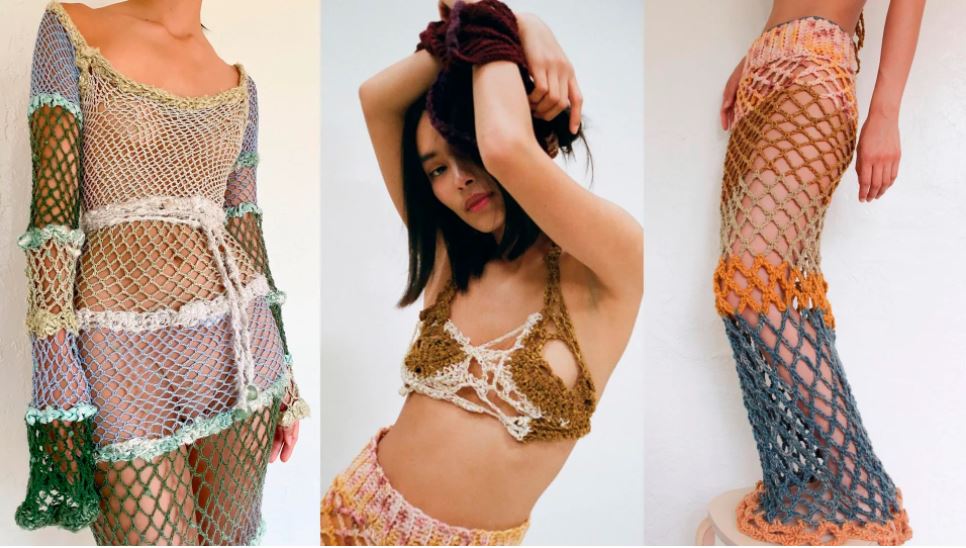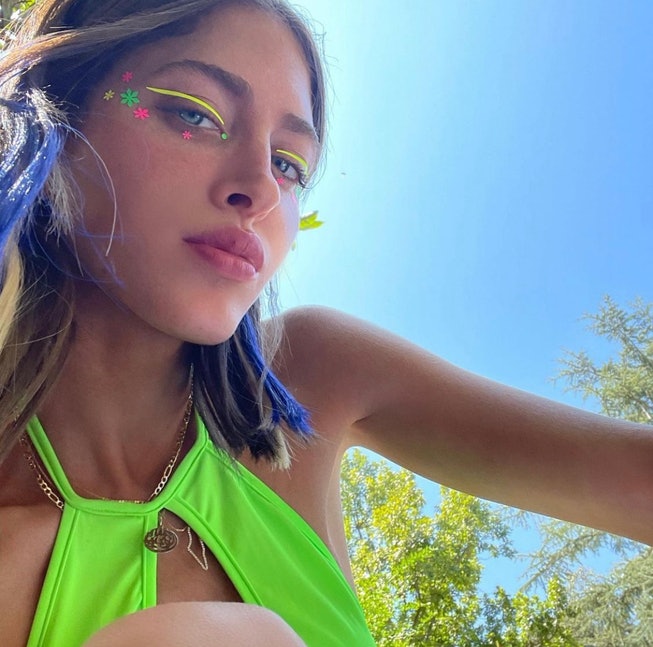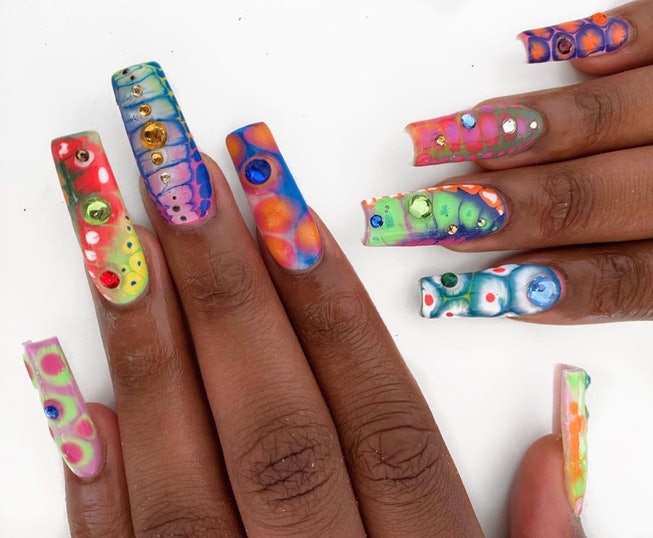During last year’s stay-at-home order, New Mexico–based Indigenous model Lily Yeung—who is Navajo and Chinese—found comfort in handicrafts. “I’ve crocheted most of my life, and I returned to it this past year during the pandemic as it is a very meditative outlet for me. It made me feel comforted when things felt uncertain,” Yeung tells Vogue.
The meditative hobby soon turned into a bigger project, however: Yeung experimented with hand-crocheted clothing items, and when she started sharing her creations on her Instagram page, the demand for her designs gained momentum. “I began to use crochet to create garments that held me and made me feel protected and beautiful,” Yeung says. “Once I began sharing some of the pieces I was making on Instagram, I realized people connected with them, which inspired the launch of my first small line of one-of-a-kind pieces.”
Officially kicked off in July, Yeung’s line is now available on APOC, and her slinky tops, skirts, and dresses are all one-of-a-kind, custom-made, and made-to-order. The designer’s skin-revealing works are meant to flatter the body, so much so that she allows her dress forms to dictate silhouettes. “I don’t use patterns and often crochet and piece things together on a dress form,” says Yeung. “It’s a very intuitive process, letting my mind wander and my thoughts transform into shape, line, and color.” A recurring inspiration for her pieces, she says, is the nature surrounding her in New Mexico and Los Angeles. “The textures, colors, and forms—a lot of my work can be traced back to memories I have of the ocean, forest, and desert,” says Yeung.
The collection also has an eco-friendly angle: Yeung primarily uses deadstock yarns and natural fibers. “I really love working with silk due to the way it moves and the beautiful feeling it has on the skin,” says Yeung. “I’ve also been connecting with more fiber farmers in New Mexico, and for some of my upcoming pieces, I will be using more regional wools and naturally dyeing my yarns. I also want to use Navajo churro wool and micaceous clay in a piece.”
Upcycling seems to run in the family: In 2015, her mother, Amy Denet Deal, started the label 4Kinship, which similarly makes use of upcycled fabrics (Yeung also models for 4Kinship). Design-wise, Yeung says she was taught never to waste materials. “I love crochet so much because when I make a piece, all that is left are some small pieces of yarn, which I save to make something new, so there is little to no waste,” she says. “Someday, I even want to grow some of my own fibers.”
But as the line expands, Yeung wants to keep things small. It’s more of a passion project: “I don’t want to be a big company; this is my art,” says Yeung. “I want to have a hands-on connection to these garments that go out into the world. I’m really trying to change the way we view what is considered wearable, to help people recognize that garments can be an art form—and a unique one at that, as it allows the wearer to interact very intimately with the piece and give it life.” Along the way, her culture will continue to shine through. “Growing up as Chinese and Navajo, my culture will always influence who I am and my art,” says Yeung. “Both cultures have such a rich history of craft and textiles; having both my parents teach and show me that history was really empowering and inspiring from a young age.”
.
.
Originally posted from “VOGUE” by Christian Allaire




No Comments